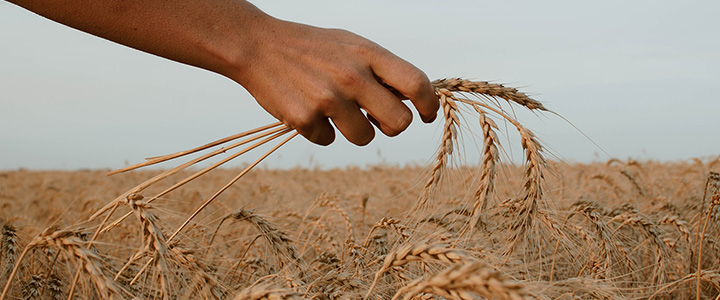It’s easy to give thanks when our hearts feel full and grateful - when our will is engaged. Often though, we don’t feel gratitude without nudging our understanding. We need to reflect and count our blessings.
That is why the males in Israel were required to ‘appear before the Lord’ at the feasts where they gave thanks for their harvests. ‘Males’ represent the understanding part of us.
Three times a year all your males shall appear before the LORD your God in the place which He chooses: at the Feast of Unleavened Bread, at the Feast of Weeks, and at the Feast of Tabernacles; and they shall not appear before the LORD emptyhanded. Every man shall give as he is able, according to the blessing of the LORD your God which He has given you.Deuteronomy 16:16-17
The second two of these three feasts were connected with their harvests - first the harvest of their early grain, and then the harvest of later grain and fruit.
You shall count seven weeks for yourself [after the Feast of Unleavened Bread]. Begin to count the seven weeks from the time you begin to put the sickle to the grain. And you shall keep the Feast of Weeks to the LORD your God with the tribute of a freewill offering from your hand, which you shall give as the LORD your God blesses you. And you shall rejoice before the LORD your God, you and your son and your daughter, your male servant and your female servant, the Levite who is within your gates, the stranger and the fatherless and the widow who are among you, at the place where the LORD your God chooses to make His name abide. And you shall remember that you were a slave in Egypt, and you shall be careful to observe these statutes.Deuteronomy 16:9-15
You shall observe the Feast of Tabernacles seven days, when you have gathered from your threshing floor and from your winepress. And you shall rejoice in your feast, you and your son and your daughter, your male servant and your female servant and the Levite, the stranger and the fatherless and the widow, who are within your gates. Seven days you shall keep a sacred feast to the LORD your God in the place which the LORD chooses, because the LORD your God will bless you in all your produce and in all the work of your hands, so that you surely rejoice.
At the two harvest feasts the Israelites were told to bring a freewill offering commensurate with their blessing, remembering that they had been slaves in Egypt. These two things are certainly important elements in gratitude: awareness of ways in which we’ve been fortunate and blessed, and mindfulness of the ways we’ve been delivered by the Lord from bondage to evil.
The Israelites were also told ‘you shall rejoice in your feast’ - together - they were all to be there! Do we need to be commanded to rejoice? And to rejoice together? It is not an onerous command to obey. But it also signals the importance and usefulness of taking pleasure in good things that are linked with the Lord and of doing this as a community. After all, we do not stand alone. We are reliant on a myriad people to sustain us in our material, social and spiritual needs. And ultimately we’re reliant on the Lord. And the Lord blesses us, and can only bless us together.
So it is good that we celebrate harvest - that symbol of our connection with one another and of all that the Lord does to sustain us and bless us.

